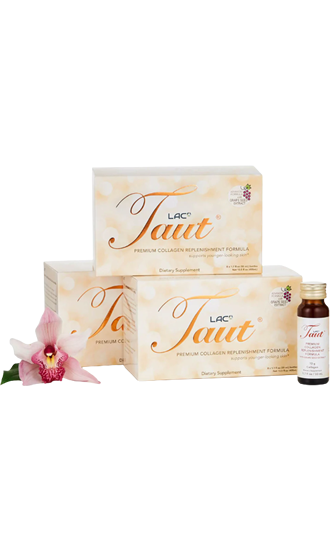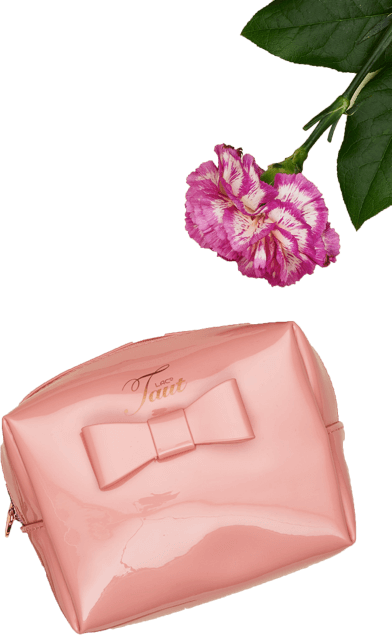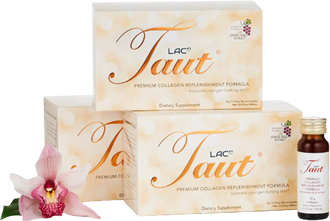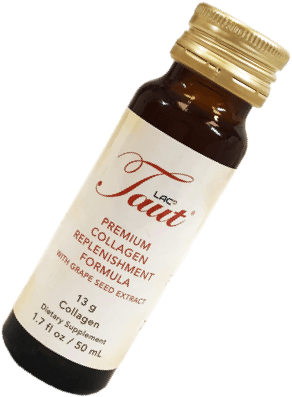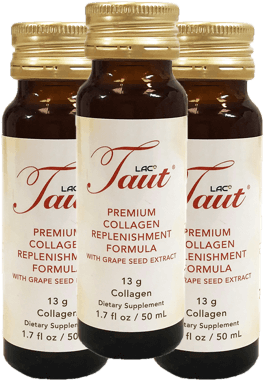Best Foods for Skin: Healthy Food, Diet, & Veg That Are Good for Your Complexion
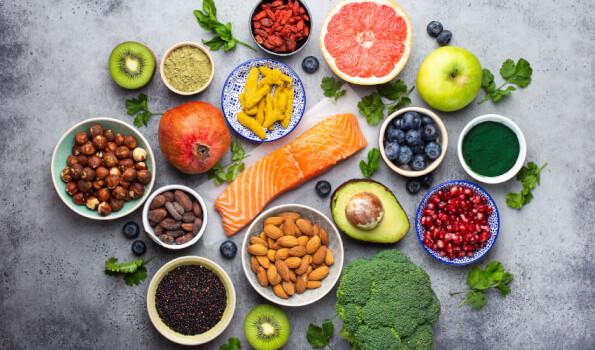
As cliche as it may sound, you are what you eat. Everything you consume not only affects your overall health but also has a major impact on your skin. So, let’s say, for example, you spend your weekend overindulging in French fries and one too many margaritas, your skin will definitely show it. This is why it’s so important to eat a clean, healthy diet not just for your wellbeing but for your skin too because, let’s be real, we all want glowing, youthful skin, right?
If you want to feel and look like the best version of yourself, the first thing you need to do is to stay hydrated and be religious about drinking your H20 every day. (Pro tip: A chic water bottle helps keep you motivated!) The second step is to eliminate the bad stuff that will wreak havoc on your skin (we’re looking at you, sugar.) And, the third thing is to incorporate wholesome, healthy food into your diet.
Is sugar bad for skin? RenewSkin Inc. tells you everything you need to know here!
In Come Superfoods...
So how do you find the foods that are good for your skin? One word: Superfoods. The term superfood has become as trendy as kale and cauliflower these days but there is truth to it. A superfood is a food that is high in nutrients and is really good for you and, therefore, is also good for your skin. These superfoods can do everything from giving you a healthy glow to warding off disease and even providing you with mild protection from UV radiation.
Here, we tapped into the knowledge of a few nutrition experts to find out which are the best superfoods to nourish your skin from within.
More helpful reading: Skin blemishes explained.
1. Antioxidants
We can’t preach about the importance of antioxidants for healthy skin enough. If you're looking to rid yourself of free radical damage and removing toxins from your body to restore your youthful glowing complexion, foods high in antioxidants are the way to go says Lisa Richards, nutritionist and author of The Candida Diet. Dietary antioxidants are excellent psoriasis, eczema, and rosacea treatments, and they can also treat sun damaged skin thanks to their anti-inflammatory effects.
Food sources of antioxidants include spinach, yellow peppers, berries, citrus fruits, broccoli, whole grains, nuts, extra virgin olive oil, fish, and green tea, among others.1
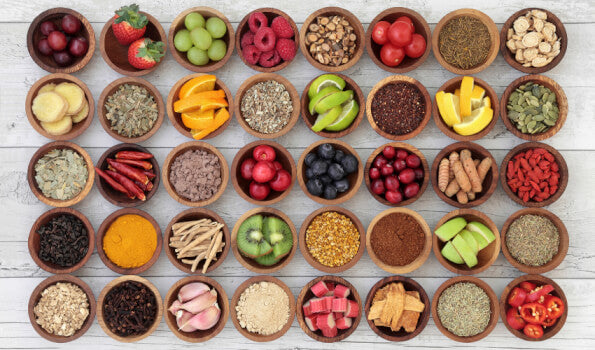
More helpful reading: Skin detox.
Green tea is an excellent source of antioxidants that helps fight against free radicals, helping to reduce dry skin and redness and improve skin elasticity. Aside from fighting free radicals and protecting skin cells from damage, studies have also shown that drinking green tea can boost metabolic rate, improve blood flow, increase fat-burning, reduce blood sugar levels, and maintain healthy brain function.2
In case you needed some more good news, studies have also shown that dark chocolate is also good for the skin. Its main ingredient, cocoa, is high in antioxidant flavonoids which can make the skin less sensitive to UV radiation, increase blood flow, and prevent the breakdown of collagen – all instrumental in helping you achieve youthful, healthy skin.3
To get back to looking and feeling like the best version of yourself, aim to incorporate dark chocolate with a high cocoa content (over 70% cocoa) into your diet, remembering that moderation is still key!
Some studies also suggest that a small glass of red wine can also be good for overall health, due to the antioxidant resveratrol found in red grape skins. Of course, you could always just incorporate more red grapes into your diet, but it's a nice excuse to swap your green tea for a glass of red every now and again.
As for how many antioxidants you need, Richards recommends 12,000 Oxygen Radical Absorbance Capacity (ORAC) points per day. Each antioxidant-rich food has a different ORAC value so a quick Google search will help you do the math.
Mascha Davis, MPH, RDN, private practice registered dietitian nutritionist, and author of the book Eat Your Vitamins, adds that evidence has shown that consuming high doses of antioxidants via supplements daily can have harmful effects. So if you do decide to supplement, be sure the dose is ideal for you.4
More helpful reading:
https://www.renewskinco.com/blogs/i/why-eating-dark-chocolate-is-a-good-thing
2. Vitamins
There’s a reason why your mom always nagged you about taking your vitamins and eating your fruits and vegetables: They are essential not just to your health but to your skin too. Vitamins like vitamin E, A, and C, to name a few, play two important roles in healthy skin and hair. Firstly, it's important to note that some of these essential nutrients are key to skin cell repair and overall health Richards says. Secondly, certain vitamins are powerful antioxidants that fight free radicals in the body. In other words, vitamins equal youthful, glowing skin.
There are two types of vitamins to be aware of when researching what superfoods to eat: water-soluble and fat-soluble vitamins.
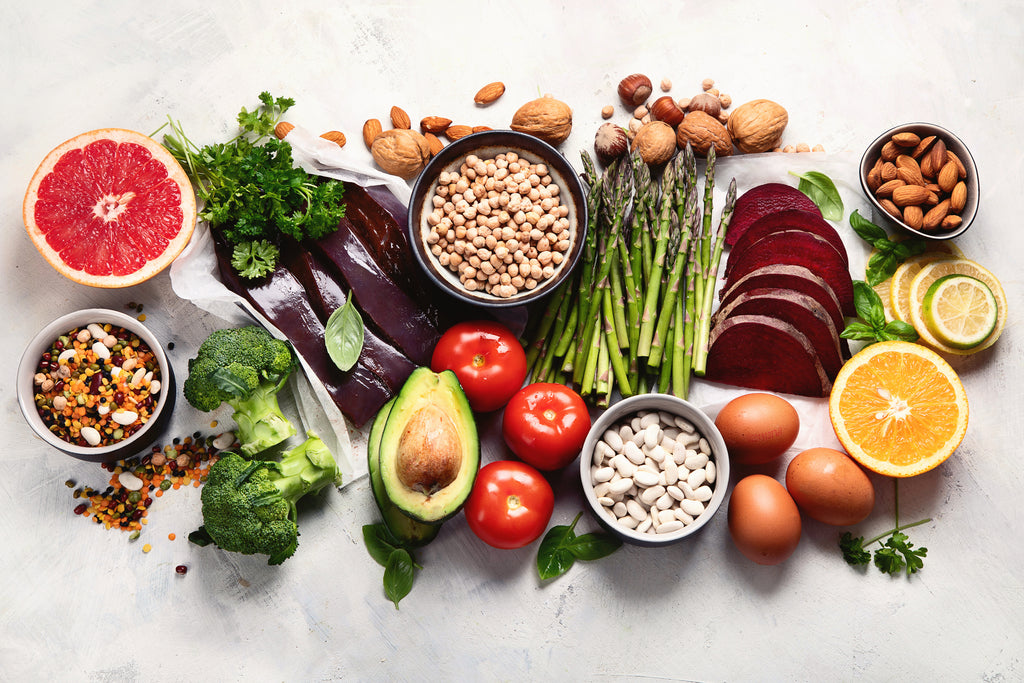
More helpful reading: ceramides
Water-Soluble Vitamins (Vitamin C & B)
Water-soluble vitamins are (as the name suggests) vitamins that are dissolvable in water. Excess water-soluble vitamins are not stored in the body but flushed out regularly, which means we need to get the right quantities in our diets every day.
More helpful reading: Anti aging foods
B Vitamins
Among the water-soluble vitamins are the B vitamins, which are necessary for your metabolism and overall energy production. They can be found in foods like whole grains, green leafy vegetables, fish, sweet potatoes, and nuts.
More helpful reading: How to get rid of marionette lines
Vitamin C
Vitamin C is the other all-important water-soluble vitamin to be aware of, it is a powerful antioxidant that helps maintain collagen levels in the body. Vitamin C and collagen work together to help fight sagging skin, fine lines, and dark spots caused by over pigmentation and sun damage. Learn more from RenewSkin Inc.: Turkey neck skin.
You can keep your skin radiant by including plenty of vitamin C rich foods in your day to day meal plans. The best foods with high vitamin C content are your fruits and vegetables, particularly citrus fruits, strawberries, bell peppers, and sweet potatoes.
More helpful reading: How to avoid wrinkles
Fat-Soluble Vitamins (Vitamins A, D, E, K)
Fat-soluble vitamins are (you guessed it) vitamins that are dissolved by fat, and they are, therefore, best consumed alongside healthy fats in order to ensure they are properly absorbed into the bloodstream.
More helpful reading: Collagen for face
Vitamin A
Vitamin A is great for the skin as it prevents breakouts and helps keep the skin moisturized. Vitamin A can also help protect the dermis from sun damage while speeding up the healing process for any existing skin damage.
You should also look out for beta carotene, otherwise known as provitamin A, which can be converted to vitamin A in the body. You might already know of beta carotene as the plant pigment that gives foods their orange or red color, but you may not know that beta carotene also has powerful antioxidant properties. Foods with a high beta carotene content include carrots, sweet potatoes, and red peppers.
More helpful reading: Vitamin A for skin
Vitamin D
Vitamin D has antimicrobial and antibacterial properties and is known as the "sunshine vitamin" as our bodies produce it naturally in response to the sun. So it is important to make sure we get at least 15 minutes of natural light every day (not forgetting to apply our SPF products in order to protect ourselves from UV damage and skin cancer).
Because we are not all lucky enough to live in sunny countries, we should also look out for edible forms of vitamin D. The best foods for vitamin D include fatty fish, red meat, egg yolks, and fortified foods such as breakfast cereals or milk.
Vitamin E
Vitamin E assists immune function and can help fight against skin cell damage, essential for healthy, glowing skin. While there is an abundance of skincare products boasting a vitamin E content, some of the best sources can be found in food. You can find rich sources of vitamin E in sunflower seeds, green leafy vegetables, and nuts.
Vitamin K
Vitamin K is essential for the process of wound healing and is also thought to be effective in reducing the appearance of stretch marks and spider veins. Leafy greens such as spinach, collard greens, kale, and broccoli are particularly high in vitamin K.
Davis highlights vitamin A, C, and E in particular as being great for the skin. She recommends you aim for 4 to 90mg of vitamin C per day depending on your age and gender. When it comes to vitamin E, she suggests anywhere between 11 and 15 milligrams per day, and finally, for vitamin A, aim for 600 to 900 micrograms daily to keep skin fighting fit.
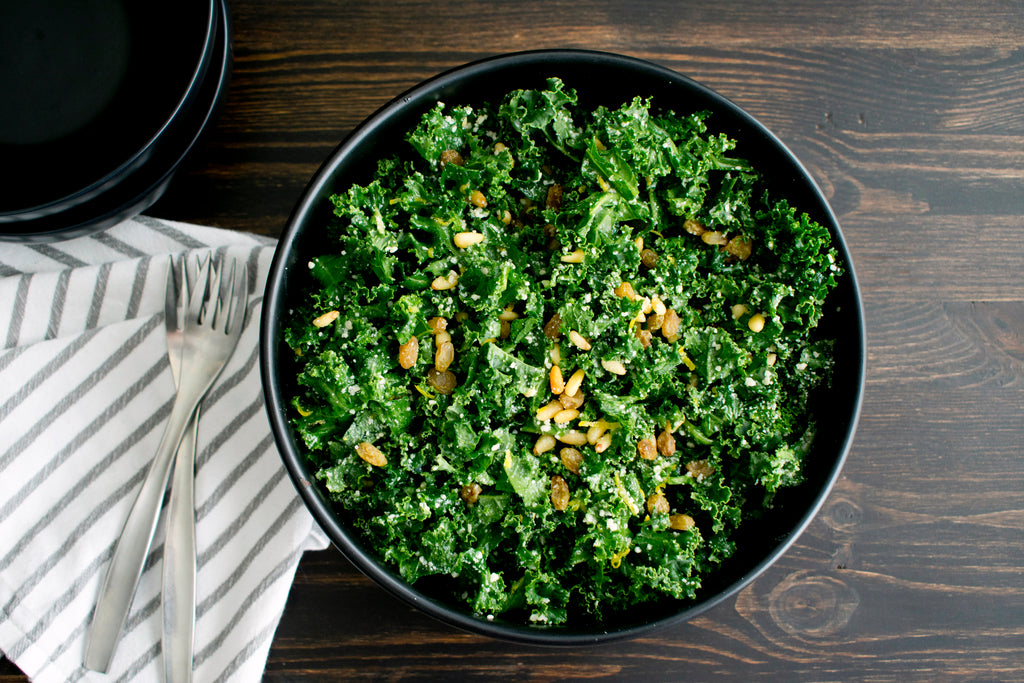
More helpful reading:
https://www.renewskinco.com/blogs/i/best-vitamins-for-skin/
3. Fiber
Fiber is a key nutrient that helps your body eliminate toxins and keeps you regular (yes, we’re talking about going number two), Davis says. This is great news for your skin because those toxins might otherwise negatively affect your skin.
Not only that, but fiber also helps your body absorb nutrients and antioxidants more effectively, Richards says. This high absorption rate is essential to preventing skin damage while also encouraging collagen production.
Now that we’ve sold you on the importance of incorporating more fiber into your diet, you’re probably wondering what the best foods are to help you move things along (no pun intended). According to Richards, some high fiber foods include carrots, beans, whole grains, spinach, and broccoli. Fruits with a high amount of fiber include pears, grapefruit, and blueberries. The recommended amount of fiber per day, Davis adds, is 25 grams for women and 38 grams for men.
4. Fats
Don’t let them deter you. Fats are actually good for your skin and contribute to how plump skin looks. According to Davis, the hypodermis (the fatty layer of your skin) is made up of collagen, sweat glands, and fat cells. If this layer becomes thin, the skin starts to sag and loses its volume. This is why she recommends getting at least a third of your daily energy content from fats.
However, it is important to note that there are different types of fats to choose from.
Unsaturated vs. Saturated Fats
Saturated fats are known as the "bad fats", most commonly found in meat and dairy products, and processed food products. Saturated fats are known to have a negative impact on your heart health, causing inflammation and raising cholesterol, which is why we are encouraged to reduce our intake of foods with high-fat content.
Monounsaturated Fats
There are, however, good sources of fats that have positive effects on our overall health and on our skin. Monounsaturated fats may help reduce the risk of cardiovascular disease, and they can be found in plant-based sources such as olive oil, avocados, nuts, and seeds.
Polyunsaturated Fats
Polyunsaturated fats are essential to a healthy diet, and they can be found in flax, sunflower, and chia seeds, walnuts, soybeans, and oily fish like salmon, sardines, mackerel, and tuna.
When it comes to fish, Davis recommends looking at labels like MSC and BAP to ensure the fish is sourced sustainably to minimize the harm we are causing the environment.
Polyunsaturated fats can be further broken down into two categories, which are important to note when planning our nutrition for better skin.
Omega 3 Fatty Acids & Omega 6 Fatty Acids
Polyunsaturated fats come in the form of two essential fatty acids; omega 3 (alpha-linolenic acid) and omega 6 (linoleic acid).
Omega 3 fatty acids are the best to look out for, as they have a range of positive effects on your skin. Omega 3s can reduce inflammation, regulate the skin's oil production, and they may help reduce redness, dry skin, and acne.
And in case you need any more convincing, they can also help protect the skin from sun damage and skin aging! Considering UV damage can lead to skin cancer, we should make sure to incorporate plenty of omega 3 rich foods into the diet.
Omega 6 fatty acids are less beneficial and some studies suggest they even increase inflammation, so it is important to focus on feeding your skin with a higher ratio of Omega 3 fatty acids vs Omega 6 fatty acids. Foods rich in omega 3 fatty acids include fish oil, cod liver oil, olive oil, chia seeds, and walnuts.

More helpful reading:
https://www.renewskinco.com/blogs/i/keto-diet-benefit-skin
5. Fermented Foods
Fermented food products such as sauerkraut, kefir, kimchi, miso, apple cider vinegar, and yogurt are ones you definitely want to incorporate into your routine if you don’t already, as they contain natural probiotics that contribute to healthy skin. Richards says that these foods can improve gut health by promoting the growth of beneficial bacteria in the intestines. And, a healthy gut has a positive impact on our overall health, including our skin health. On the other hand, too much bad bacteria can lead to premature aging of the skin as well as skin blemishes.
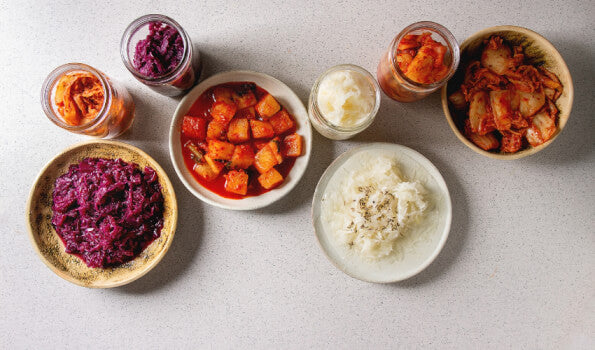
While there is no recommended daily intake, Davis recommends aiming for one serving of fermented foods every other day. Taking daily probiotics is another option but be sure to do your research and look for a high-quality brand, as not all probiotics are created equal.
More helpful reading: Skincare for oily skin by RenewSkin Inc.
6. Superfood From the Sea
Foods sourced from the sea such as algae are also known to be beneficial for the skin. Rich in water, algae hydrates the skin. In fact, according to Davis, some species are also packed with antioxidants and protein. They're also high in nutrients such as vitamins depending on the type you go for. There is no recommended daily intake of superfoods from the sea but Davis suggests adding them into your meals one to two times a week. Learn more about collagen food from RenewSkin Inc.
Some of the best foods from the sea include nori (think about your sushi rolls!), spirulina, edible moss, and dulse.
More helpful reading: Chlorella growth factor benefits for skin.
Experience The Full Benefits Of The Sea With Taut's Marine Collagen
If you really want to feel the benefits of superfood from the sea, marine collagen is an excellent addition to your skincare routine.
Our Taut Premium Collagen Advanced Formula collagen drink contains a high percentage of marine collagen peptides (13000mg) sourced from red snapper fish, wild-caught in the Indian Ocean. When ingested, this high concentration of collagen peptides triggers a wound repair response in the body, which encourages your skin cells to produce more collagen.
Collagen is one of the main building blocks for healthy skin. It is responsible for maintaining skin elasticity, and it helps fight skin aging while reducing fine lines and wrinkles. As your natural collagen levels decline with age, adding products and supplements with a high collagen content to your routine will help keep your skin supple and healthy.
The benefits of marine collagen are endless. Marine collagen is quickly absorbed into the bloodstream and will help you achieve the quickest results for your skin. It is also the most environmentally-friendly option as it is sustainably sourced from parts of the fish which are usually discarded.
Our premium formula combines this high dose of marine collagen content with other star ingredients like vitamin C, elastin, hyaluronic acid, and grape seed extract, which all work together to fight against free radicals caused by pollutants like cigarette smoking, reduce fine lines and wrinkles, and rejuvenate the skin with noticeable results after just three weeks.
And did we mention it’s free of preservatives and has a yummy orange taste? Consider it your secret weapon for youthful, radiant skin.
More helpful reading: How to get rid of forehead wrinkles

More helpful reading on lips & smoking by RenewSkin Inc.
7. Micronutrients
Micronutrients is another term you hear a lot in the wellness world but what does it mean? Put simply, micronutrients are all the vitamins and minerals your body needs for healthy function.
Think of micronutrients as our barrier against UV rays, protecting us from sun damage, says Richards.
So where do you get your micronutrients from? Well, sources vary depending on the micronutrient you're trying to increase intake of, according to Davis. To achieve your 100mg per day of micronutrients, Davis recommends you eat plenty of fruits and vegetables, seafood, lean protein, and whole grains.
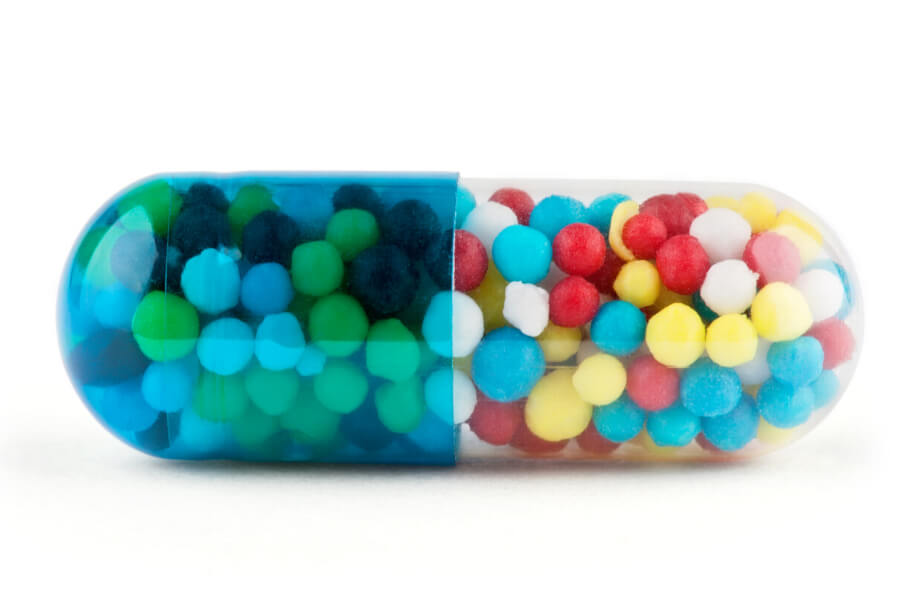
8. Anti-Inflammatory Foods
Inflammation is the main culprit when it comes to skin ailments, says Richards. With this in mind, incorporating anti-inflammatory foods into your diet, Davis adds, will help reduce inflammation in your body and as a result, reduce skin symptoms like rashes, dry skin, and acne. Learn more about acne free diets.
Davis and Richards share that good anti-inflammatory foods include ginger, turmeric, peanuts, whole grains, fatty fish, extra virgin olive oil, avocado, almonds, broccoli, berries, and ginger. So, make sure to add these to your grocery list ASAP if you struggle with inflammation, and you'll be on your way to healthy skin in no time.
Although there is no specific recommended daily dose of anti-inflammatory foods, Richards suggests trying to incorporate at least one at every meal to help reduce inflammation and signs of aging. Given how wild everyone is about avocado, for example, and how easily available it is at most restaurants, that shouldn’t be too hard to do. Avocado toast, anyone?
More helpful reading: How to lose weight.
9. Protein
The three main proteins in our skin are keratin, collagen, and elastin, Davis says. By consuming enough of these proteins, you can reduce the sign of wrinkles and fine lines while also increasing skin elasticity. The bottom line is: You need to get sufficient protein in your diet if you want good-looking skin. Want to learn more about improving skin elasticity? RenewSkin Inc. explains.
You should also look out for amino acids, which are the building blocks of protein as they function to regulate our protein metabolism.
The best protein and amino acid sources Davis recommends for collagen production and other skin benefits include citrus fruits, green leafy vegetables, seafood, whole grains, beans, and legumes. Richards adds that it’s important to incorporate more plant-based proteins versus animal proteins for optimal skin health. If you include too much saturated fat from animal proteins, your skin may become prone to acne or too oily she explains.
The ideal amount of protein to consume on a daily basis varies from person to person. A good rule of thumb, Davis shares, is about 1 gram of protein per kg of body weight.
More helpful reading:
https://www.renewskinco.com/blogs/i/gelatin
Supercharge Your Skincare Routine With Taut
Although eating a healthy diet full of superfoods will help you become the best version of yourself while also doing wonders for your skin, taking a high-quality collagen supplement can help take your skin to that next level and reverse the signs of aging.
The Taut Ultimate Transformation program combines the advanced marine collagen of our Intense Transformation Program (3 boxes Taut Premium Collagen Drink Advanced Formula) with our signature Collagen Sheet Mask and Taut Hydrate hyaluronic acid supplements.
While the marine collagen peptides in our Taut Premium Collagen Drink get to work on boosting your collagen production, Taut Hydrate gets to work on seriously hydrating and plumping your skin from within. Taut Hydrate is a high-potency plant-based supplement with hyaluronic acid and grape seed extract, specially formulated to promote supple, healthy skin and a radiant glow.
Completing the Ultimate Transformation program is our Collagen Sheet Mask, designed to deliver hydrolyzed collagen and vitamin C that will penetrate into the dermis layer of your skin. Targeting the sagging, dehydrated skin caused by stress, free radicals, and aging, our sheet mask is a relaxing 15–20 minute treatment that tones, hydrates, and brightens the skin.
By incorporating these supplement products and our luxurious collagen face masks into your skincare routine, you can give yourself an extra boost towards youthful, radiant, healthy skin.
We know that trying to incorporate all of the best foods for healthy skin into your routine can be a full-time job in its own right. The most important thing to remember is to do your best and crowd out the bad stuff as much as you can in order to incorporate more of the good and healthy ingredients little by little. If you can start by boosting your intake of fruits and vegetables, and maybe swap out one of your daily coffees for a green tea, you'll be on the right track. After all, it is a lifestyle change, not a diet.
And, if you want that extra support to see faster results for your skin, our Taut Ultimate Transformation Bundle is available as a monthly subscription program to help you achieve long-lasting radiance. Contact us today for more information about our products and subscription plans!
More helpful reading: Best serum for face RenewSkin Inc.
References:


